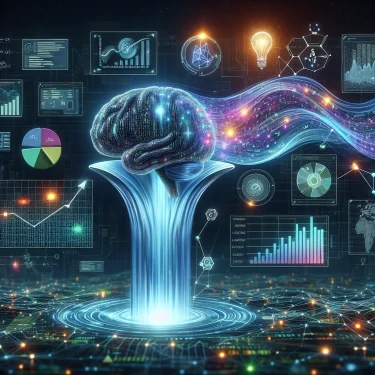Optimization AI Big Data Analytics
In today’s digital age, the use of artificial intelligence (AI) and big data analytics has become crucial for businesses to stay competitive and optimize their operations. Optimization AI, in particular, leverages advanced algorithms and machine learning to analyze large sets of data and identify patterns, trends, and insights that can help improve decision-making and drive efficiencies.
What is Optimization AI?
Optimization AI refers to the use of artificial intelligence techniques to optimize various processes and systems within an organization. By applying AI algorithms to large data sets, businesses can gain valuable insights into their operations and make more informed decisions. This can lead to cost savings, improved productivity, and enhanced customer experiences.
One of the key benefits of Optimization AI is its ability to automate complex tasks that would typically require human intervention. This not only saves time and resources but also reduces the risk of errors and inconsistencies. By harnessing the power of AI, businesses can streamline their operations and focus on strategic initiatives that drive growth.
Additionally, Optimization AI can help businesses in predictive maintenance by analyzing historical data to predict when equipment is likely to fail. This proactive approach can prevent costly downtime and maintenance expenses.
Furthermore, Optimization AI can optimize supply chain management by identifying inefficiencies, predicting demand fluctuations, and optimizing inventory levels. This can lead to reduced costs, improved delivery times, and enhanced customer satisfaction.
The Role of Big Data Analytics
Big data analytics plays a crucial role in the optimization process by gathering, storing, and analyzing vast amounts of data from various sources. By leveraging advanced analytics tools and techniques, businesses can uncover valuable insights that can inform their decision-making and drive continuous improvement.
Through the use of machine learning algorithms, big data analytics can identify patterns and trends in data sets that humans may overlook. This can lead to more accurate predictions and recommendations that help optimize business processes and drive better outcomes. By harnessing the power of big data analytics, businesses can gain a competitive edge in today’s data-driven economy.
Moreover, big data analytics can help businesses in customer segmentation and targeting by analyzing customer behavior and preferences. This can enable personalized marketing campaigns that resonate with the target audience and drive higher engagement and conversion rates.
Additionally, big data analytics can assist in risk management by identifying potential risks and opportunities based on data analysis. This can help businesses make proactive decisions to mitigate risks and capitalize on emerging trends.
The Benefits of Optimization AI and Big Data Analytics
- Improved Decision-Making: By leveraging Optimization AI and big data analytics, businesses can make more informed decisions based on data-driven insights rather than gut instinct.
- Cost Savings: Automation and optimization of processes can lead to cost savings by streamlining operations and reducing inefficiencies.
- Enhanced Customer Experiences: By analyzing customer data, businesses can personalize their offerings and improve customer satisfaction.
- Competitive Advantage: Businesses that harness the power of Optimization AI and big data analytics can gain a competitive edge in their industry by staying ahead of trends and making proactive decisions.
In conclusion, Optimization AI and big data analytics are essential tools for businesses looking to stay competitive in today’s digital landscape. By leveraging advanced algorithms and machine learning techniques, organizations can optimize their operations, drive efficiencies, and make more informed decisions that lead to long-term success.
FAQ
What is Optimization AI?
Optimization AI refers to the use of artificial intelligence techniques to optimize various processes and systems within an organization. By applying AI algorithms to large data sets, businesses can gain valuable insights into their operations and make more informed decisions. This can lead to cost savings, improved productivity, and enhanced customer experiences.
How does Big Data Analytics contribute to the optimization process?
Big data analytics plays a crucial role in the optimization process by gathering, storing, and analyzing vast amounts of data from various sources. By leveraging advanced analytics tools and techniques, businesses can uncover valuable insights that can inform their decision-making and drive continuous improvement.
What are the key benefits of Optimization AI and Big Data Analytics?
- Improved Decision-Making: By leveraging Optimization AI and big data analytics, businesses can make more informed decisions based on data-driven insights rather than gut instinct.
- Cost Savings: Automation and optimization of processes can lead to cost savings by streamlining operations and reducing inefficiencies.
- Enhanced Customer Experiences: By analyzing customer data, businesses can personalize their offerings and improve customer satisfaction.
- Competitive Advantage: Businesses that harness the power of Optimization AI and big data analytics can gain a competitive edge in today’s data-driven economy.

Trackbacks/Pingbacks